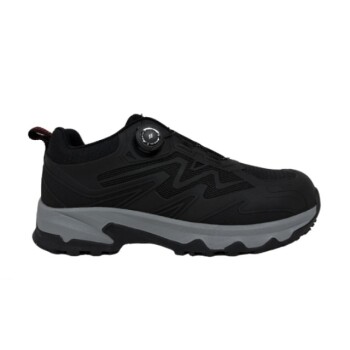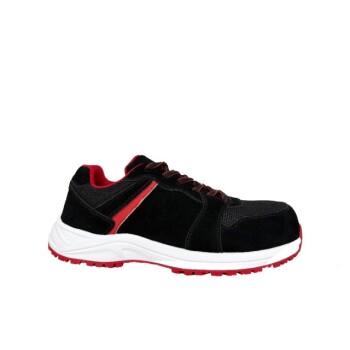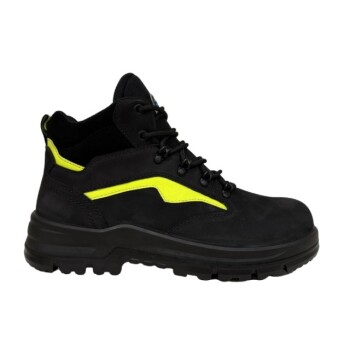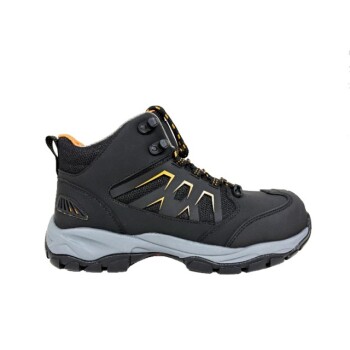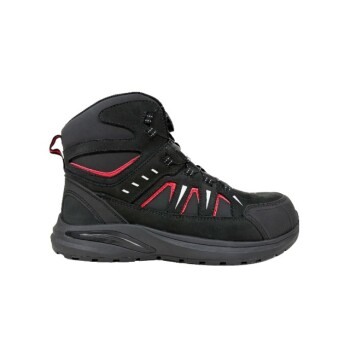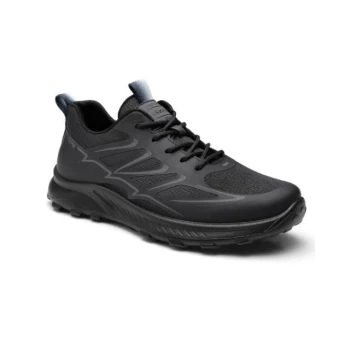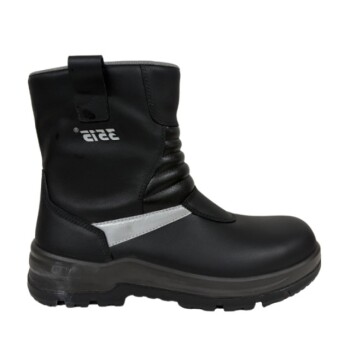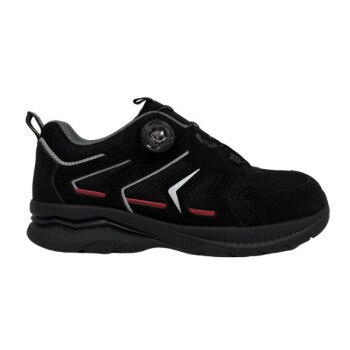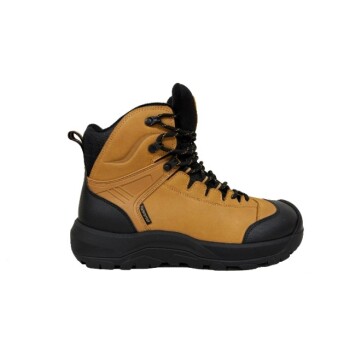Slip-resistant shoes directly contribute to workplace productivity by minimizing physical and mental disruptions. This is achieved not only by preventing major injuries that cause significant downtime but also by eliminating the minor slips and near-misses that break concentration and cumulatively erode efficiency throughout the workday.
The true productivity gain from slip-resistant footwear comes from shifting an employee's focus. By providing a stable, secure foundation, these shoes allow workers to dedicate their full cognitive energy to their tasks rather than subconsciously worrying about the environment under their feet.
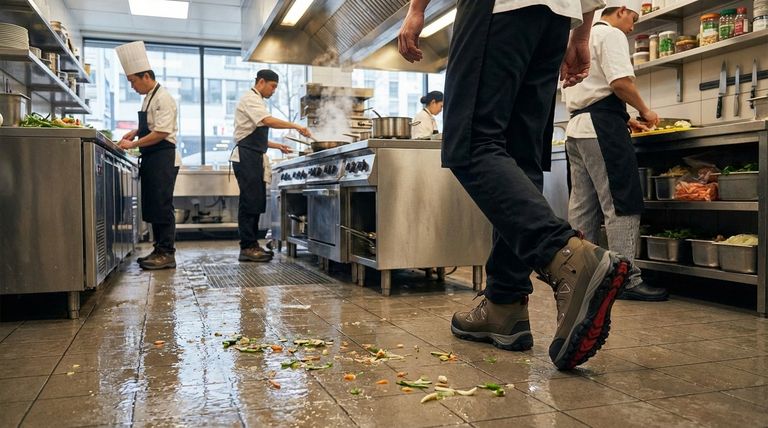
The Foundation: How Slip-Resistant Shoes Work
To understand their impact on productivity, we must first understand the simple physics that make these shoes effective. Their design is entirely focused on a single goal: maximizing friction.
The Principle of Friction
Slip-resistant shoes are engineered with soft rubber soles that create a stronger bond with the floor surface than typical shoe materials.
The defining feature is their deep, intricate tread pattern. These grooves are not random; they are designed to channel water, oil, and other contaminants away from the sole's point of contact with the floor.
This channeling action ensures that more of the rubber sole maintains direct, solid contact with the ground, dramatically increasing grip and reducing the risk of hydroplaning on slick surfaces.
Translating Safety into Productivity
The most obvious benefit of slip-resistant footwear is safety, but this safety is the direct catalyst for enhanced productivity in several distinct ways.
Reducing Downtime from Major Injury
Slips, trips, and falls are among the most common non-fatal workplace injuries.
Each incident results in lost workdays, administrative overhead, and potential replacement labor costs. Preventing these injuries is the most direct and measurable way slip-resistant shoes protect productivity.
Eliminating Micro-Disruptions
Productivity isn't just lost to major accidents. It's also lost in the small moments—the minor slip that doesn't result in a fall but causes a worker to flinch, pause, and break their workflow.
These "micro-disruptions" add up significantly over a shift, hindering momentum and efficiency. Secure footing allows for fluid, uninterrupted movement.
Enhancing Cognitive Focus
When workers feel safe and stable, they can dedicate their full attention to their craft, whether it's a chef chopping vegetables, a factory worker operating machinery, or a healthcare professional attending to a patient.
This psychological security removes a layer of background anxiety, freeing up mental bandwidth that translates directly into higher quality work and fewer errors.
The Impact of Comfort and Support
Modern slip-resistant shoes are also designed for ergonomics. Features like cushioning, arch support, and lightweight construction reduce physical fatigue.
A worker who is less fatigued is more alert, more focused, and can maintain a higher level of performance for the duration of their shift.
Understanding the Trade-offs and Limitations
While highly effective, slip-resistant shoes are not a complete solution on their own. Understanding their limitations is key to building a truly safe and productive environment.
They Are Part of a System
Slip-resistant shoes are a critical defense, but they cannot overcome excessively greasy or uncleaned floors. They must be part of a comprehensive safety program that includes regular and appropriate floor maintenance.
Effectiveness Degrades Over Time
The deep treads that provide grip will wear down with use. As the sole becomes smooth, its ability to channel liquids and maintain friction decreases significantly.
Footwear must be inspected regularly and replaced when the tread pattern is no longer effective. This is a recurring operational cost that is essential for maintaining safety.
Not All Shoes Are Created Equal
The term "slip-resistant" is not uniformly regulated. The effectiveness of footwear can vary dramatically between brands and models. Relying on shoes that meet established safety standards (like those set by OSHA) is critical.
Making the Right Choice for Your Goal
Implementing a footwear policy should be tailored to the specific demands of your work environment.
- If your primary focus is on high-risk areas like commercial kitchens or industrial factories: Mandate shoes with aggressive, deep-channel tread patterns and ensure they comply with relevant industry safety standards.
- If your primary focus is on reducing fatigue for workers on their feet all day, such as in healthcare or retail: Prioritize shoes that balance a high-quality slip-resistant sole with superior cushioning, arch support, and lightweight materials.
- If your primary focus is on building a comprehensive safety culture: Treat slip-resistant footwear as a non-negotiable component of personal protective equipment (PPE), integrated with mandatory floor cleaning protocols and employee training.
Ultimately, investing in proper footwear is a direct and cost-effective investment in the stability, focus, and sustained productivity of your entire team.
Summary Table:
| Productivity Benefit | How Slip-Resistant Shoes Help |
|---|---|
| Reduces Major Injury Downtime | Prevents slips and falls that cause lost workdays and administrative costs. |
| Eliminates Micro-Disruptions | Stops minor slips that break concentration and disrupt workflow momentum. |
| Improves Cognitive Focus | Provides psychological security, freeing mental bandwidth for tasks. |
| Combats Physical Fatigue | Ergonomic design with cushioning and support keeps workers alert longer. |
Ready to invest in your team's safety and productivity?
As a large-scale manufacturer, 3515 produces a comprehensive range of high-quality, ergonomic slip-resistant footwear for distributors, brand owners, and bulk clients. Our production capabilities encompass all types of safety shoes and boots designed to meet industry standards, reduce workplace injuries, and keep your workforce focused and efficient.
Contact us today to discuss your needs and discover how our footwear solutions can enhance your workplace safety program.
Visual Guide
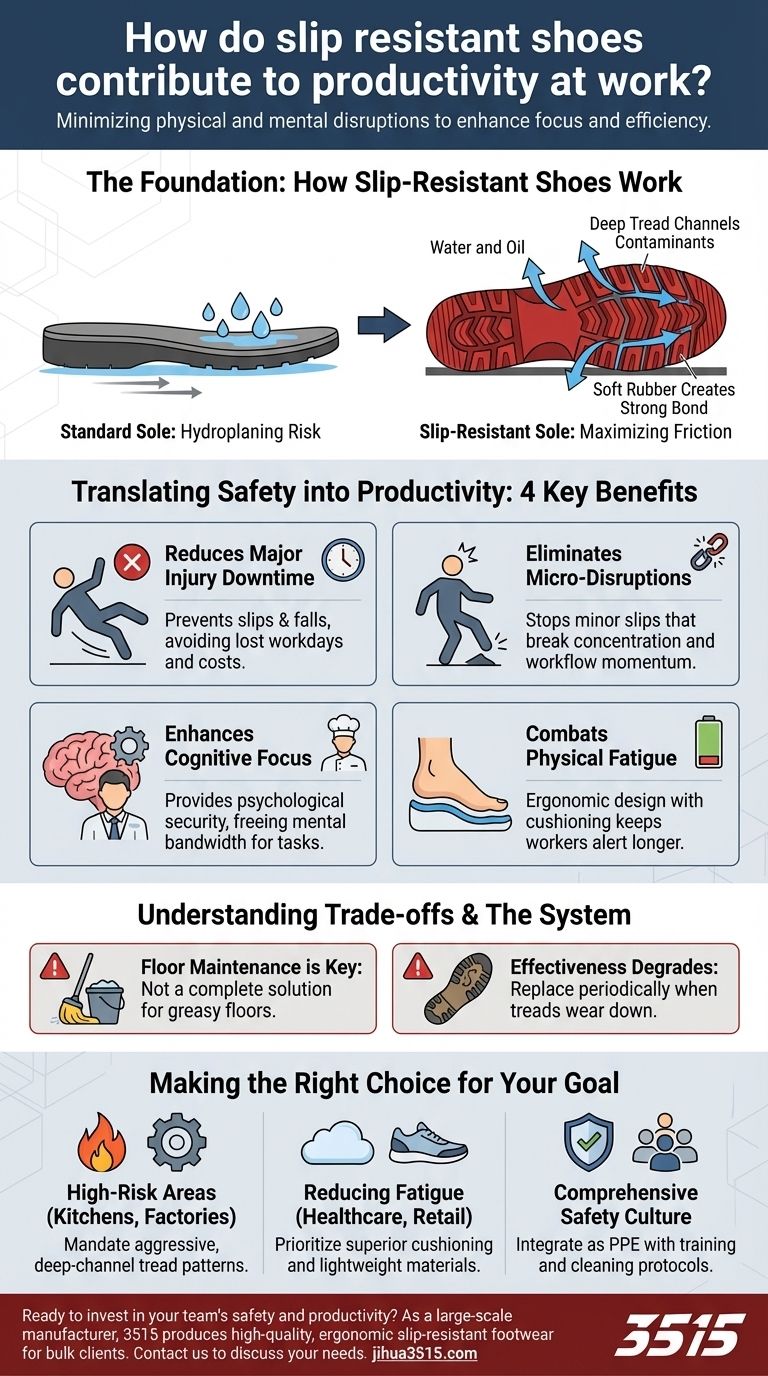
Related Products
- Safety Footwear Wholesale Manufacturer for Custom OEM/ODM Production
- Advanced KPU Athletic Safety Shoe with Steel Toe Cap Anti-Slip Rotary Lacing System
- Premium Suede Sport Safety Shoes for Wholesale & Bulk Orders
- Wholesale Premium Waterproof Nubuck Safety Shoes Boots
- Customizable Slip-On Safety Shoes Direct from the Factory for Wholesale
People Also Ask
- What is the purpose of the tread pattern on non-slip shoes? Master Fluid Dynamics for Ultimate Grip
- What is the 'Occasional Footwear Standard' and what does it test for? | Slip Resistance & Durability Explained
- What professions benefit most from slip-resistant shoes? Enhance Safety in High-Risk Work Environments
- What is the general perception of non-slip shoes in workplace safety? Uncover the Truth About Slip-Resistant Footwear
- How do I make sure my shoes are non-slip? DIY Fixes vs. Engineered Safety
- How frequently should anti-slip shoes be replaced? A Guide to Maximizing Safety and Value
- What is a final tip for maintaining slip resistance in work shoes? The Ultimate Strategy for Lasting Safety
- What industries are most at risk for slips and falls at work? Protect Your Workforce and Bottom Line

